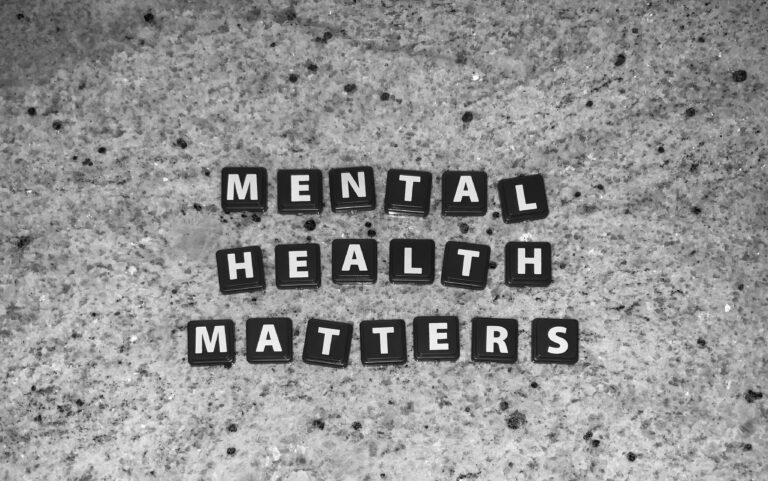Your day starts with intention, and it can be the difference between thriving and just surviving. Research shows that what you do first thing in the morning sets the tone for your entire day, from stress levels to productivity and emotional well-being. Doing a specific activity first thing—like drinking water or making your bed—can set a positive tone and kick off a chain reaction of productivity and organization.
When you develop a healthy mindset from the moment you wake up, you set yourself up for success in all areas of life. These aren’t just feel-good practices—they’re scientifically backed strategies that can clear your mind, boost your resilience, and help you navigate daily challenges with ease.
This guide offers 7 morning rituals anyone can do regardless of schedule or lifestyle. Each ritual is designed to clear mental clutter, focus, and create a foundation for lasting well-being. You don’t have to do all seven at once. Start with one that resonates with you and build your own morning routine.
Why Your Morning Mindset Matters
Your brain is most receptive to new habits in the first few hours after waking. This period is often called the “golden hour,” when your cortisol levels naturally peak and you have the energy and focus to create good habits.
Studies in the Journal of Health Psychology show people who start their day with intentional practices report 23% less stress and 19% better emotional regulation throughout the day. The reason is that morning rituals activate your parasympathetic nervous system, which promotes calmness and mental clarity. The benefits of these intentional morning rituals are felt as increased emotional stability and reduced stress, providing a grounded start to the day.
When you start your day reactively—checking emails, scrolling social media, or rushing through tasks—you trigger your body’s stress response. This floods your system with cortisol and adrenaline, making it harder to think clearly and respond thoughtfully to challenges.
Intentional morning rituals do the opposite. They regulate your nervous system, improve cognitive function, and build emotional resilience. Research from Harvard Medical School shows consistent morning practices can actually rewire your brain for greater optimism and stress tolerance over time.
Build Your Foundation for Morning Rituals
A positive morning routine starts before your alarm goes off—it begins with how you end your previous day. Building a strong foundation for your morning rituals means prioritizing restful sleep and creating an environment that supports your well-being from the moment you wake.
Start by setting a consistent wake-up time, even on weekends, to help regulate your body’s natural rhythms. This simple act will make it easier to get out of bed and start your morning rituals with energy and focus. Create a peaceful sleep environment by dimming the lights, putting away screens at least an hour before bed, and consider calming activities like gentle breathing exercises, meditation, or reading to signal to your body it’s time to rest.
A good night’s sleep is the foundation of any positive morning routine. When you allow your body and mind to fully rest, you wake up feeling refreshed, clear-headed, and ready to start your day on the right foot. This sets a positive tone for the entire day ahead, making it easier to stay focused, energized, and committed to your morning rituals.
By making sleep and relaxation a priority, you’re not just preparing for a better morning; you’re investing in your overall well-being and giving yourself the best possible start every morning.
7 Morning Mindset Rituals
1. Gratitude Journaling
Start your day by writing down three things you’re grateful for. The act of writing things down as part of your gratitude journaling helps to reinforce positive thoughts and makes your reflections more tangible. This simple practice shifts your brain from focusing on what’s missing to appreciating what’s present in your life.
Gratitude journaling activates the prefrontal cortex, the part of your brain responsible for emotional regulation and positive thinking. A study from UC Davis found that people who practiced daily gratitude experienced 25% better sleep quality and 15% increased life satisfaction.
Keep a small notebook and pen beside your bed. Before getting up, spend 2-3 minutes writing down specific things you appreciate. Instead of general statements like “I’m grateful for my family,” try “I’m grateful for the way my partner made me laugh last night” or “I’m grateful for the comfortable bed that helped me sleep well.”
The key is specificity. Detailed gratitude statements create stronger neural pathways and have a more lasting impact on your mood and outlook.
2. Focused Breathwork.
Focused breathing calms your nervous system and enhances mental clarity. The 4-7-8 technique is great for morning practice.
Here’s how to do it: Inhale through your nose for four counts, hold your breath for seven counts, then exhale through your mouth for eight counts. Repeat this cycle 4-6 times.
This breathing pattern activates your vagus nerve, which signals your brain to shift from stress mode to relaxation mode. Research from the American Journal of Respiratory and Critical Care Medicine shows controlled breathing can lower cortisol levels by up to 23% in just 5 minutes.
Allocate 2-5 minutes for breathwork. You can do this sitting on the edge of your bed, in a comfortable chair, or even while still in bed. The important thing is to breathe deliberately and focus your attention on the rhythm.
3. Set a Daily Intention
Unlike goals, which focus on outcomes, intentions focus on how you want to show up in the world. They provide direction for your day’s activities.
Effective intentions are simple and actionable. Examples are “Stay present in conversations”, “Approach challenges with curiosity”, or “Choose kindness in difficult moments”.
Setting intentions helps activate your reticular activating system (RAS), a network of neurons that filters information and helps you notice opportunities aligned with your focus. When you set a clear intention, your brain becomes more attuned to situations where you can live out that intention.
Write your daily intention on a sticky note and place it somewhere you’ll see it throughout the day. This visual reminder helps to reinforce your chosen mindset and keeps you aligned with your values.
4. Move Your Body
Physical movement in the morning kickstarts your metabolism and releases endorphins, your body’s natural mood elevators. Moving our bodies early in the day is essential for setting a positive tone and overall well-being. You don’t need an intense workout – even 10-15 minutes of gentle movement can make a big impact on your mental state.
Research from the American Psychological Association shows morning exercise increases focus and cognitive function for up to 12 hours. Exercise in the morning also reduces symptoms of anxiety and depression by releasing BDNF (brain-derived neurotrophic factor), a protein that supports brain health.
Try a simple routine like sun salutations, gentle stretching, or a short walk around your neighborhood. The goal isn’t to exhaust yourself but to activate your body and mind connection. If you’re short on time, even 5 minutes of movement can be good. Try marching in place, jumping jacks, or a quick yoga flow. Consistency is key, not intensity.
5. Hydrate and Nourish
After 6-8 hours without water, your body is dehydrated. Starting your day with a glass of water helps rehydrate your cells and kickstart your metabolism. You can also start with warm water instead of cold water, which can be soothing and help open up your system.
Add a squeeze of lemon to your water for extra benefits. Lemon has vitamin C and citric acid, which support immune function and aid in nutrient absorption.
Choose brain-boosting foods for your morning meal. Oatmeal with chia seeds provides omega-3 fatty acids and fiber for sustained energy. A green smoothie with spinach, berries, and protein powder gives you antioxidants and stable blood sugar levels. Green tea is a healthy morning drink to boost your mood and overall well-being.
Even if you’re not a breakfast person, try to eat something nourishing in the morning to fuel your body and mind for the day.
Avoid foods high in sugar or refined carbohydrates, which can cause energy crashes and mood swings later in the day. Instead, focus on whole foods that provide steady energy and support cognitive function. Eating mindfully in the morning, taking time to eat a nourishing breakfast, is part of a healthy morning routine.
6. Digital Detox
Don’t check your phone, emails, or social media for the first 30 minutes after waking. This digital boundary protects your mental space and allows you to start the day on your own terms.
When you check your phone immediately, you’re letting other people’s priorities and emotions influence your mindset before you’ve had a chance to centre yourself. This can lead to increased stress, scattered thinking, and reactive behaviour throughout the day.
Instead, use this time for your morning rituals. Keep your phone in another room or use a traditional alarm clock to avoid the temptation to scroll. If you must check your phone, do so only after you’ve completed your morning routine.
This practice helps you maintain control over your attention and energy, sets a proactive rather than reactive tone for the day.
7. Visualization or Mindfulness Practice
Start your day with a morning meditation, 5-10 minutes to set a positive and mindful tone. Morning meditation helps you cultivate peace, emotional stability, and presence.
Spend this time visualizing your day going well or practicing mindfulness meditation. Both practices help prepare your mind for challenges while keeping an optimistic outlook. Using guided meditations (app or audio track) can make it easier to focus and deepen your mindfulness practice.
For visualization, imagine yourself moving through your day with confidence and ease. See yourself handling meetings successfully, enjoying interactions with others, and feeling accomplished at the end of the day. This mental rehearsal activates the same neural pathways as actual experience, making positive outcomes more likely and helping reduce stress in the morning.
Mindfulness practice is focusing on the present moment without judgment. You can focus on your breath, do a body scan, or simply observe your thoughts and feelings without trying to change them. These practices help you connect with yourself on a deeper level, promote self-awareness, and inner peace.
Research from Johns Hopkins University shows that 10 minutes of daily mindfulness practice can reduce anxiety by 39% and improve emotional regulation by 27%.
Overcoming Obstacles to Your Morning Routine
Even with the best intentions, sticking to a morning routine can be tough. Life happens—maybe you hit the snooze button one too many times, feel unmotivated, or find it hard to focus as you start your day. The good news is that these obstacles are normal and there are simple ways to overcome them.
Start by identifying what’s getting in the way of your routine. If you find yourself hitting snooze, try moving your alarm clock or phone across the room. This small change forces you to get out of bed, making it easier to break the cycle and start your morning. If motivation is lacking, add something you enjoy to your routine, like listening to your favourite music or reading a few pages of an inspiring book.
Breaking your morning routine into smaller, manageable steps can also make a big difference. Focus on one task at a time—whether it’s making your bed, doing a quick breathing exercise, or simply opening the curtains to let in some fresh air. Each small win builds momentum and helps you stay focused on your intentions for the day. Remember, consistency is more important than perfection. If you miss a morning or your routine doesn’t go as planned, don’t be too hard on yourself. Just refocus and try again the next day. Over time, these small changes will help you develop a morning routine that feels natural and supports your goals.
Building Consistency in Your Healthy Mindset Routine
Start small and build gradually. Choose one ritual that feels most appealing and commit to it for a week, focusing on spending your mornings intentionally. Once it becomes natural, add another practice. This way you avoid overwhelm and increase your chances of long-term success.
Prepare the night before to reduce morning decision fatigue. Set out your journal, prepare your water bottle, and lay out your workout clothes or charge your meditation app. These small preparations make it easier to follow through when you’re still groggy and help you avoid starting your day rushed and feeling spent.
Be patient with yourself as you develop these habits. Research shows it takes an average of 66 days to form a new habit. Some days will be easier than others, and that’s completely normal. The key is consistency over perfection. Reviewing your schedule in the morning can also help you not forget important tasks.
Track your progress in a simple way. You might use a habit tracker app, mark days on a calendar or simply note how you feel after completing your morning routine. This feedback helps to reinforce the positive impact of your practices.
Staying Motivated for the Long Term
Maintaining a positive morning routine for the long term can be tough, especially when life gets busy or you experience setbacks. The key to staying motivated is to remind yourself of the benefits you’re experiencing—like more energy, better focus, and overall well-being throughout your day.
Celebrate your progress, no matter how small. Maybe you meditated for just 5 minutes or stuck to your morning rituals for a whole week. Acknowledge these wins and let them fuel your motivation. If you miss a day, don’t dwell on it—just get back to your routine the next morning with a positive attitude.
To keep things fresh and enjoyable, try adding variety to your morning rituals. Switch up your meditation practice, try new breakfast recipes, or experiment with different movement or breathing exercises. This keeps your routine interesting and helps you discover what works best for your energy and focus. Most importantly, make your morning routine a sacred time for yourself. Treat it as a non-negotiable part of your day that supports your well-being and sets a positive tone for everything that follows. By focusing on the positive impact your morning rituals have on your life, you’ll find it easier to stay motivated and committed for the long term.
Tailoring Morning Rituals to Your Lifestyle
Creating your own morning routine is key—your morning ritual should fit your life, not the other way around. Personalise your routine to suit your needs and preferences. If you’re not a morning person, start with just one 5-minute practice and gradually extend your routine as it becomes more natural. Including skincare in your morning ritual can be beneficial; choose products suitable for your skin type and consider using a jade roller for a gentle facial massage.
For a busy schedule, combine practices. The coffee pot can be a symbol of starting the day—enjoy coffee mindfully as part of your routine. You can do breathwork while your coffee brews, practice gratitude during your commute, or set your intention while getting dressed. Morning time is ideal for establishing positive routines that support physical health and boost energy levels. The key is intentionality, not duration.
Night shift workers or those with irregular schedules can adapt these practices to their “morning” whenever that occurs. The principles remain the same: start your active period with intention, clarity, and self-care.
Parents with young children might need to wake up 15 minutes earlier or involve their kids in age-appropriate practices. Teaching children about gratitude, breathing, or movement creates valuable family habits.
Intentional morning routines can have a big impact on our lives. Consistent routines help create positive habits, support well-being, and set the tone for the day.
Start Your Journey to Better Mornings
These 7 morning rituals provide a foundation for developing a healthy mindset that carries you through tough days and enhances happy ones. The science is clear: how you start your day affects your mental clarity, emotional balance, and overall well-being.
We hope you feel inspired to try a new morning ritual and see the positive changes it can bring to your life.
You don’t need to change overnight. Pick one ritual that resonates with you and commit to trying it tomorrow morning—something as simple as making your bed can set a positive tone for the rest of the day. Notice how it affects your mood, energy, and outlook. As you experience the benefits, you’ll naturally want to add more to your routine. Most importantly, you make your morning routine a sacred time for yourself. Treat it as a non-negotiable part of your day that supports your well-being and sets a positive tone for everything that follows. By focusing on the positive impact your morning rituals have on your life, you’ll find it easier to stay motivated and committed for the long term.
Medical Disclaimer:
This content is for informational purposes only and is not intended as medical advice, diagnosis, or treatment. Always consult with a qualified healthcare professional before making any changes to your diet, exercise, or health routine. Never disregard professional medical advice or delay seeking it because of something you have read on this site.




